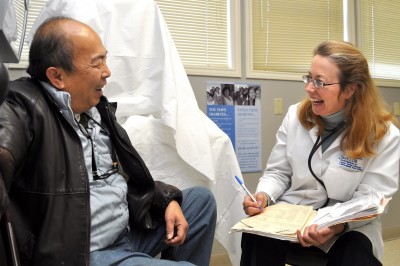July 9, 2014- Interviewed by Steven E. Greer, MD
Senator Angus King from Maine has proposed a a bill that would make the pricing of medical devices more transparent. Currently, hospitals are required to sign confidentiality agreements, and the market is entirely in the dark. If such a law were passed, it would turn the medical device industry on its head.
October 23, 2013- Interviewed by Steven E. Greer, MD
The Healthcare Channel interviewed the CEO of MannKind, Al Mann, and the CFO, Matt Pfeffer. Topics discussed include the latest clinical trial data on inhaled insulin Afrezza and the cash situation. We also discuss Mr. Mann’s other company, Second Sight, which has a Medicare and FDA-approved bionic eye to treat diseases that damage the nerves in the retina.
Super rapid acting insulin and inhaled insulin
September 29, 2013-By Steven E. Greer, MD
In June of 2012, The Healthcare Channel published an influential Op-Ed in the WSJ exposing an $11 Billion program of the ACA Law (ObamaCare) as pure pork. The Director of the Program, Richard Gilfillan, MD, made a rare rebuttal in public. Read more »

February 5, 2015- Op-ED by Steven E. Greer, MD
The large health insurance company now called Anthem, formerly known as WellPoint (which owns Blue Cross plans, adding to the confusion of nomenclature) is making national news for announcing that Read more »
January 18, 2015- By Steven E. Greer, MD
On July 20th, 2011, the FDA convened an advisory committee to help it determine whether to approve the first ever TAVR device called the Sapien, made by Edwards Lifesciences. I was a public speaker raising the Read more »
 Cardiac surgery, Cardiology/interventional, CMS Medicare Medicaid, Columbia University, FDA, JAMA, Medical Devices, Neurology, Op-Ed, Policy, Univ Pennsylvania | apples49 |
Cardiac surgery, Cardiology/interventional, CMS Medicare Medicaid, Columbia University, FDA, JAMA, Medical Devices, Neurology, Op-Ed, Policy, Univ Pennsylvania | apples49 |  January 25, 2015 6:58 pm |
January 25, 2015 6:58 pm |  Comments (0)
Comments (0)
February 7, 2014- By Steven E. Greer, MD
The Patient Centered Outcome Research Institute (PCORI) was created by the PPACA “ObamaCare” law in 2010. Well-funded with approximately $3 Billion over ten years, the mission was, among other things, supposed to be to conduct comparative effectiveness research (CER) that would determine whether costly therapies are any better than cheaper alternatives.
The rise of CER has been one of the most feared developments by the drug and device industries. To avoid powerful lobbying efforts that could have resulted in de-funding and the death of PCORI before it got started, the institute steered away from even hinting at conducting CER. Now, almost four years later, PCORI is finally funding CER research. However, critics, such as former White House Director of Office of Management and Budget, Peter Orzag, say that the money spent by PCORI on CER is still not enough.
Meanwhile, a leading doctor in charge of PCORI research strategies, Harlan Krumholz, MD, Read more »
Update January 5, 2014- This is now being reported in the New York Times, two-months after our reporting. Read more »
February 3, 2014- By Steven E. Greer, MD
The Healthcare Channel was the first to report in 2012 that the new CMMI, created by the ACA “Obamacare” law, was nothing but a pork project designed to deliver funds to political cronies. Subsequent to our reporting, the senate convened oversight hearings, and the director of CMMI was fired.
Today, the New York Times reports that the quality of “research” coming out of CMMI is suspect. Gina Kolata writes, ” The idea seemed transformative. The Affordable Care Act would fund a new research outfit evocatively named the Innovation Center to discover how to most effectively deliver health care, with $10 billion to spend over a decade. But now that the center has gotten started, many researchers and economists are disturbed that it is not using randomized clinical trials, the rigorous method that is widely considered the gold standard in medical and social science research. Such trials have long been required to prove the efficacy of medicines, and similarly designed studies have guided efforts to reform welfare-to-work, education and criminal justice programs.” Read more »
 February 15, 2014- Opinion, By Steven E. Greer, MD
February 15, 2014- Opinion, By Steven E. Greer, MD
The ability to get a joke, or comprehend that a sarcastic comment was meant as humor, requires high-level abstract thinking. Memorization does not.
In social media venues, people with low intelligence are on full display every day. On Twitter, for example, I often make sarcastic comments that are obvious jokes. Most people “get it”. However, invariably, some random yahoo will reply angrily misinterpreting my sarcasm as a straight comment.
It occurred to me recently that perhaps being able to detect sarcasm, irony, and other complex components of human intelligence would be a better screening tool for pre-med student aptitude than the MCAT and GPA. Maybe all medical school interviews should involve some sort of comedy club session, with the admission board secretly watching the applicants on video monitors. Read more »
 November 21, 2014- By Steven E. Greer, MD
November 21, 2014- By Steven E. Greer, MD
With so much news in the national press focusing on the Obamacare exchanges and new healthcare policies, it is unclear whether the majority of Americans have the new forms of health insurance now, or whether most Americans have been unfazed by the benefits or drawbacks of the new law. The Healthcare Channel asked some policy experts who preferred to remain anonymous in the wake of the MIT economist Gruber’s scandal. This is what we learned. Read more »





